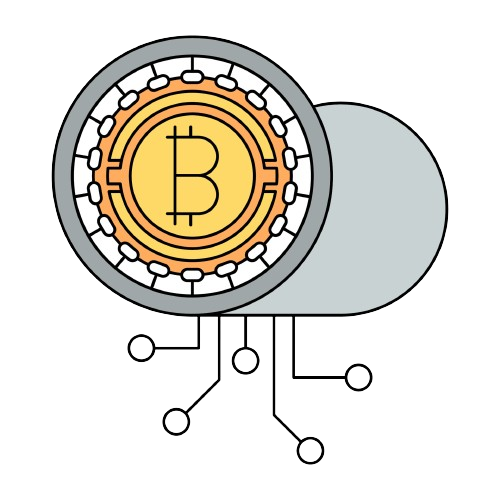
One of the most attractive qualities of cryptocurrencies like Bitcoin is their ability to transfer value quickly and securely across the globe. However, not all crypto transactions happen instantly – transfer times can range from a few minutes to over an hour in some cases. For cryptocurrency holders using a Bitcoin wallet to move funds between exchanges or users, unpredictable transfer durations can be frustrating.
The time required to fully confirm and settle a crypto transaction depends on several key technical factors related to the blockchain network and wallets used. By understanding the variables that affect transfer speeds, cryptocurrency holders can set appropriate expectations when initiating transfers from their Bitcoin wallet.
Transaction Fees
The single biggest factor influencing how fast a cryptocurrency transfer gets confirmed is the fee paid to network validators. Fees incentivize miners or validators to prioritize that transaction for inclusion in the next block.
Bitcoin and other major cryptocurrencies do not have fixed fees for transactions. Users set their custom fees based on network conditions at the time. In periods of high transaction volume like a price surge, fees naturally increase as users compete to get included faster.
Typically, the higher the transaction fee set in the Bitcoin wallet, the faster the transfer will get confirmed. During low network usage, even small fees get picked up quickly. But when many transactions flood in at once, only those with competitive fees avoid long delays.
Altcoins with fixed fees like Litecoin or Nano do not have this variable transfer speed issue. However, Bitcoin wallet users can accelerate transfers by manually setting higher customizable fees. Websites like BitcoinFees help estimate appropriate fee levels during different network conditions.
Block Generation Time

The pre-programmed block generation time for a blockchain network also plays a role in transfer durations using a Bitcoin wallet. Blocks containing transaction data are generated in set intervals that vary by cryptocurrency.
For example, Bitcoin blocks are mined on average every 10 minutes, Ethereum blocks around every 15 seconds, and Litecoin blocks about every 2.5 minutes. A transaction cannot be considered fully settled until recorded in a validated block.
Therefore, currencies with slower block times inherently have longer wait times for transaction finality. Of course, parameters like fees can shrink the actual duration, but the underlying block rate places a limit on possible speed. All things equal, a transaction on Ethereum will confirm much faster than Bitcoin simply due to different block rates.
Multi-Signature Requirements
An increasingly common requirement, especially for larger crypto transfers between firms, is multi-signature authorizations. Here, a transaction is not executed until a pre-set number of signers approve it. This added verification layer enhances security for transactions with high value.
However, requiring multiple signatures can extend transfer durations depending on the coordination between signers and the wallet interfaces involved. Having to wait for multiple parties to review and digitally sign for a transaction adds a cumbersome manual step to speedy automated transfers.
With multi-signature transactions, the speed limit shifts from technical factors to organizational factors between human signers. Unless carefully streamlined, this can easily increase transfer times by hours or even days compared to single-authority transactions.
Wallet Interface Usability
The choice of a Bitcoin wallet and its ease of use also plays a subtle role in transfer speeds. Web-based hosted wallets often provide the most user-friendly experience for initiating and reviewing transactions. They remove the need to download blockchain ledger data, allowing near-instant creation of transactions.
In contrast, running a full Bitcoin node locally gives users more privacy and security assurances. However, syncing the entire hundreds of gigabytes of blockchain data can take days for initial setup. While verifying against local data is more secure, it introduces latency compared to trusting external servers on hosted wallets.
Moreover, differences in wallet interface design affect how fast users can craft and broadcast transactions for the network to confirm. Streamlined interfaces make transaction drafting one-click simple, whereas clunky tools slow down the initial steps. Thus, convenience-focused wallet options tend to provide slightly faster transfers overall.
Mempool Backlogs

When transferring Bitcoin from one wallet to another, the transaction first gets broadcast to Bitcoin’s mempool. This serves as a temporary holding area for pending transactions awaiting inclusion in the next block. Miners select transactions from the mempool to include in their solved block.
However, Bitcoin’s block size is limited to 1 megabyte while the mempool has no restrictions. During times of peak transaction activity, the mempool can become congested with transactions competing to get confirmed. The mempool fills up much faster than transactions can be included in blocks.
When the mempool becomes backlogged, priorities shift to highest-fee transactions first. Even after broadcast, low-fee transactions can get stuck for hours in the clogged mempool before a miner picks them up. Again, properly estimating fees helps avoid mempool delays as transactions queue for limited block space.
Conclusion
A variety of technical and usage factors influence the speed of cryptocurrency transfers from a user’s Bitcoin wallet. While blockchains offer faster settlement compared to traditional finance, transactions do not happen instantly without the right conditions. By understanding variables like network fees, blockchain parameters, wallet interfaces, and mempool congestion that affect transfer durations, users can set realistic expectations when moving digital assets.
With cryptocurrencies still maturing, transfer speeds also have room for improvement through ongoing upgrades like Bitcoin’s Lightning Network. Nonetheless, the current incarnation of Bitcoin wallets and blockchains already enable global value transfer orders of magnitude faster than traditional wire transfers. A little planning and research help cryptocurrency holders send funds from their wallets more efficiently. Even if not instant, cryptocurrency transactions can ultimately facilitate rapid payments compared to legacy finance.